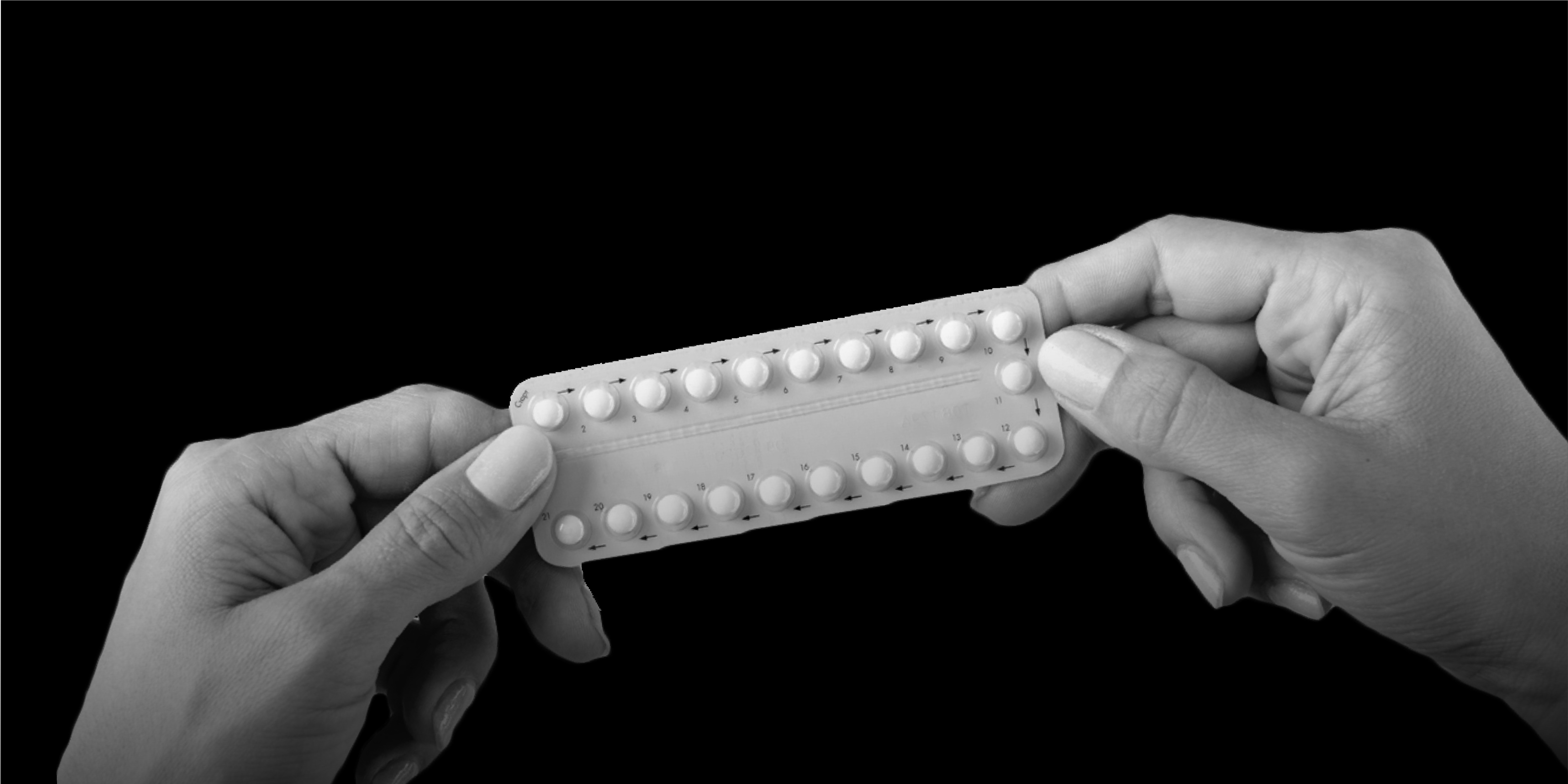When talking about contraception in the Philippines, the conversation tends to be hush-hush. Most especially when it involves something as sensitive as emergency contraceptive pills (ECPs), more commonly known as “morning-after pills” or “Plan B.”
Many women are hesitating to use ECPs partly because of the conservative nature of Filipino society, where people often avoid or brush aside discussions around reproductive health.
But in truth, unintended pregnancies can happen, even with the best intentions. Whether it’s because of contraceptive failure (like a condom breaking) or unprotected sex, there is still a safe, effective option to prevent pregnancy.
Unfortunately, because emergency contraception in the Philippines is still a taboo subject, many people don’t know where to find it, how to use it properly, or how much it costs.
This guide is here to help you learn more about emergency pills in the Philippines and how you can navigate this confusing but necessary part of reproductive healthcare. For a quick rundown, check out the infographic below!

What Are Emergency Contraceptive Pills?
Emergency contraceptive pills (ECPs) are medications taken after unprotected sex or contraceptive failure to prevent pregnancy. They are not abortion pills but work by postponing or preventing ovulation so that fertilization does not occur.
In some cases, ECPs may also prevent fertilization by altering the movement of sperm or eggs through the fallopian tubes, reducing the likelihood that they meet. If fertilization already occurred, ECPs might prevent the fertilized egg from implanting in the uterus.
However, once implantation begins, ECPs will not affect or terminate an existing pregnancy, which is why it’s best to take them as soon as possible.
The effectiveness of ECPs decreases the longer you wait after unprotected sex. Levonorgestrel-based pills (like Plan B) are most effective when you take them within 72 hours, while ulipristal acetate (Ella) can be effective up to five days after.
It’s also important to note that, unlike other forms of contraception, ECPs don’t prevent sexually transmitted diseases like HIV.
What Are the Different Types of ECPs?
- Levonorgestrel (Plan B)
Plan B is the most common emergency contraceptive pill in the Philippines. Levonorgestrel-based pills are effective if taken within 72 hours of sex without protection, with the highest efficacy if taken within 24 hours.
These pills are single-dose and work by preventing ovulation. However, they are less effective if ovulation already occurred.
- Ulipristal Acetate (Ella)
A brand like Ella is a prescription-only ECP that remains effective for up to 120 hours (five days) after unprotected intercourse. It works by inhibiting or delaying ovulation, even closer to the time of ovulation than levonorgestrel pills.
Ella may be more effective for women who are already nearing ovulation or those taking the pill several days after intercourse.
Why Shouldn’t ECPs Be Used as a Regular Contraceptive Method?
ECPs are intended for emergencies, such as contraceptive failure (e.g., a condom breaking), missed birth control pills, or unintended unprotected sex.
You should not use them as a regular form of birth control because they are not as effective as ongoing contraceptive methods like birth control pills, IUDs, or condoms. Frequent use of ECPs may also cause more side effects, such as irregular menstrual cycles. To know more about the safety of how frequent ECPs should be used, it’s best to ask a medical professional.
This information is for general knowledge and should not replace professional medical advice. Always consult your doctor or a qualified healthcare professional for any concerns or questions about your health or the use of emergency contraceptive pills.
Where to Buy Emergency Contraceptive Pills in the Philippines?
You may wonder, “Where can I buy emergency contraception pills in the Philippines?”
Due to cultural and legal constraints, getting ECPs in the country can be challenging. However, they are available through various online and physical channels, though availability may differ.
Here are the places where you can get emergency contraceptive pills in the Philippines and the price you can expect to pay:
- Pharmacies and drugstores
ECPs are not always widely available in mainstream pharmacies due to the country’s conservative views on contraception. Major drugstore chains like Watsons may carry them, but availability can be inconsistent.
Some branches might require a prescription, so it’s imperative to call ahead or inquire at your local pharmacy.
- Online options
E-commerce platforms like Amazon and global online pharmacies like Watsons offer ECPs with discreet delivery, making them a convenient option for those uncomfortable buying in-store. Local websites like Plan B Manila and Plan B Philippines also provide ECPs for purchase.
You can also risk it with Facebook Marketplace, Shopee, and Lazada, but be careful of scams and check the reviews.
- Price range
Prices for ECPs vary depending on the brand and type, typically ranging from ₱200 to ₱1,500. Levonorgestrel-based pills may be at a lower price point, while ulipristal acetate pills tend to be more expensive.
Always check for exact prices when ordering online or in-store to compare options.
How to Properly Use Emergency Contraceptive Pills?
For ECPs to work as intended, you must understand the proper timing, dosage, and potential side effects. Here’s a guide on how to use them properly:
When Should You Take ECPs?
ECPs are most effective when taken as soon as possible after unprotected intercourse. Ideally, you should take them within 72 hours (3 days) for maximum effectiveness. However, you can take some ECPs up to 5 days (120 hours) later.
The sooner you take the pill, the more effective it is at preventing pregnancy. For example, taking the medication within the first 24 hours can reduce the risk of pregnancy by up to 95%, while effectiveness diminishes over time, dropping to around 61% if taken at the 72-hour mark.
Dosage and instructions
The dosage of ECPs depends on the specific brand you choose:
- Levonorgestrel (Plan B): Take one dose (1.5 mg) as soon as possible after unprotected intercourse. The pill is at its most effective when taken within 72 hours. There is no need for a second dose.
- Ulipristal Acetate (Ella): Take one dose (30 mg) as soon as possible after unprotected sex. You can take this option 120 hours after intercourse, and it remains effective throughout that period, making it a suitable choice if you’re past the 72-hour mark.
Regardless of which type you use, following the instructions on the packaging or as advised by a healthcare professional is crucial.
Side effects
After taking ECPs, you may experience some common side effects, usually mild and temporary. These can include:
- Nausea: It typically subsides within a few hours. If vomiting occurs within two hours of taking the medication, consult a healthcare provider, as you may need to take another dose.
- Fatigue: You might feel more tired than usual for a short period.
- Dizziness: Some users report feeling dizzy, which usually resolves quickly.
- Changes in menstruation: You may notice changes in your menstrual cycle, such as it being earlier, later, or heavier than your usual periods. Most women will have their next period within the week of the expected date. However, it’s best to take a pregnancy test if your period is more than a week late.
What Is The Yuzpe Method?
If you can’t find any ECPs, you can use Trust Pills as emergency contraception in the Philippines.
The Yuzpe Method is one of the earliest forms of emergency contraception and was developed in the 1970s by Dr. Albert Yuzpe. This method involves taking a specific combination of oral contraceptives containing both estrogen and progestin within 72 hours after unprotected sexual intercourse.
While not as widely used today due to the availability of more effective options like levonorgestrel and ulipristal acetate, it remains a crucial alternative for those who may not have access to these newer methods.
So, how many Trust Pills can you use for emergency contraception in the Philippines? The steps for the Yuzpe Method are as follows:
Dosage
The Yuzpe Method requires two doses (two pills) of the trust pill or any standard birth control pill containing both estrogen and progestin.
Timing
Take the first dose as soon as possible after unprotected intercourse, ideally within the first 72 hours. Take the second dose 12 hours after the first dose. Adhering to this schedule maximizes the method’s effectiveness.
Effectiveness
The Yuzpe Method is approximately U if you do these steps within 72 hours of unprotected intercourse. However, its effectiveness can differ based on several factors, including the timing of taking the pills relative to your ovulation schedule and how your body metabolizes hormones.
Side effects
While the Yuzpe Method can be effective, you can also experience some temporary side effects. These are similar to what you experience after taking an ECP and will subside after some time.
What Causes the Stigma Around Emergency Contraception in the Philippines?
Cultural beliefs, societal norms, and prevalent misconceptions heavily influence the discussion surrounding emergency contraception in the Philippines. Some of them are:
- Cultural taboos
The Philippines is a predominantly Catholic country, where traditional values and beliefs significantly shape public perception of contraception and reproductive health. In this context, discussions about contraceptive methods, including ECPs, frequently meet resistance.
Many Filipinos view contraception as a taboo subject, resulting in limited dialogue about its importance. This cultural stance can discourage individuals from seeking information or help regarding reproductive health, ultimately hindering access to essential services.
- Misconceptions about ECPs
One of the most pervasive misconceptions is the belief that ECPs are abortifacients—medications that terminate an existing pregnancy.
ECPs work primarily by delaying ovulation, preventing fertilization, or impeding the implantation of a fertilized egg. They are not effective once you’re already pregnant. This misunderstanding can lead to moral judgments against those who seek emergency contraception, framing it as a morally unacceptable option.
ECPs are a responsible means of preventing unintended pregnancies. Rather than being tools of promiscuity or irresponsibility, they empower women to make informed choices about their reproductive health.
How To Break The Stigma Around ECPs?
Encouraging open discussions about sexual health breaks down the stigma surrounding ECPs. Increased awareness can help demystify emergency contraception and clarify its purpose and usage.
By normalizing conversations about reproductive health, society can foster an environment where women feel comfortable seeking help and accessing necessary resources.
What Are the Medical and Legal Considerations When Taking ECPs?
Medical perspectives and legal frameworks largely shape the accessibility and public perception of emergency contraception in the Philippines.
- Medical perspective
The medical community, including the World Health Organization (WHO) and various health organizations, recognizes emergency contraceptive pills (ECPs) as a safe and effective method of preventing unintended pregnancies.
They recommend ECPs for all women, as they pose no significant health risks when used correctly.
- Legal status in the Philippines
The legalities surrounding ECPs in the Philippines are under the Reproductive Health Law, which the government enacted to make reproductive health accessible, including contraception.
Under this law, ECPs are available and should be accessible to all women. However, in practice, availability may vary significantly due to local interpretations of the law, cultural beliefs, and individual pharmacy policies.
Some pharmacies may hesitate to stock ECPs, reflecting societal attitudes toward contraception. Despite the legal framework supporting access, there still needs to be ongoing advocacy to make them readily available without stigma.
- Consulting a doctor
Women must consult a healthcare professional before using ECPs, especially if they have pre-existing medical conditions or concerns. A doctor can provide personalized advice and give you instructions on using them safely and effectively.
The Importance of Open Dialogue About Sexual Health
Fostering open conversations about sexual health and contraception can empower women to make informed choices about their bodies. Emergency contraception shouldn’t be a taboo topic but a responsible option for preventing unintended pregnancies.
By breaking down the stigma surrounding ECPs, you can promote a healthier understanding of reproductive health, encouraging everyone to prioritize their well-being and make decisions without fear of judgment.
Your Body, Your Choices
ECPs are a responsible choice for preventing unintended pregnancies, and knowing their usage and availability allows you to take control of your reproductive health. By breaking societal stigmas and misconceptions, you can create a supportive environment for women’s health and well-being.
Remember, when you prioritize your sexual health, you also take care of your overall well-being. As a sexually healthy individual, you can freely open more doors to explore your intimate experiences.
Visit Pink Bunny to discover a world of excitement through sex toys in the Philippines. From vibrator sex toys to lingerie, we can provide you with products to make your bedroom playtime fun.
Check out our physical locations on our Contact Us page!




